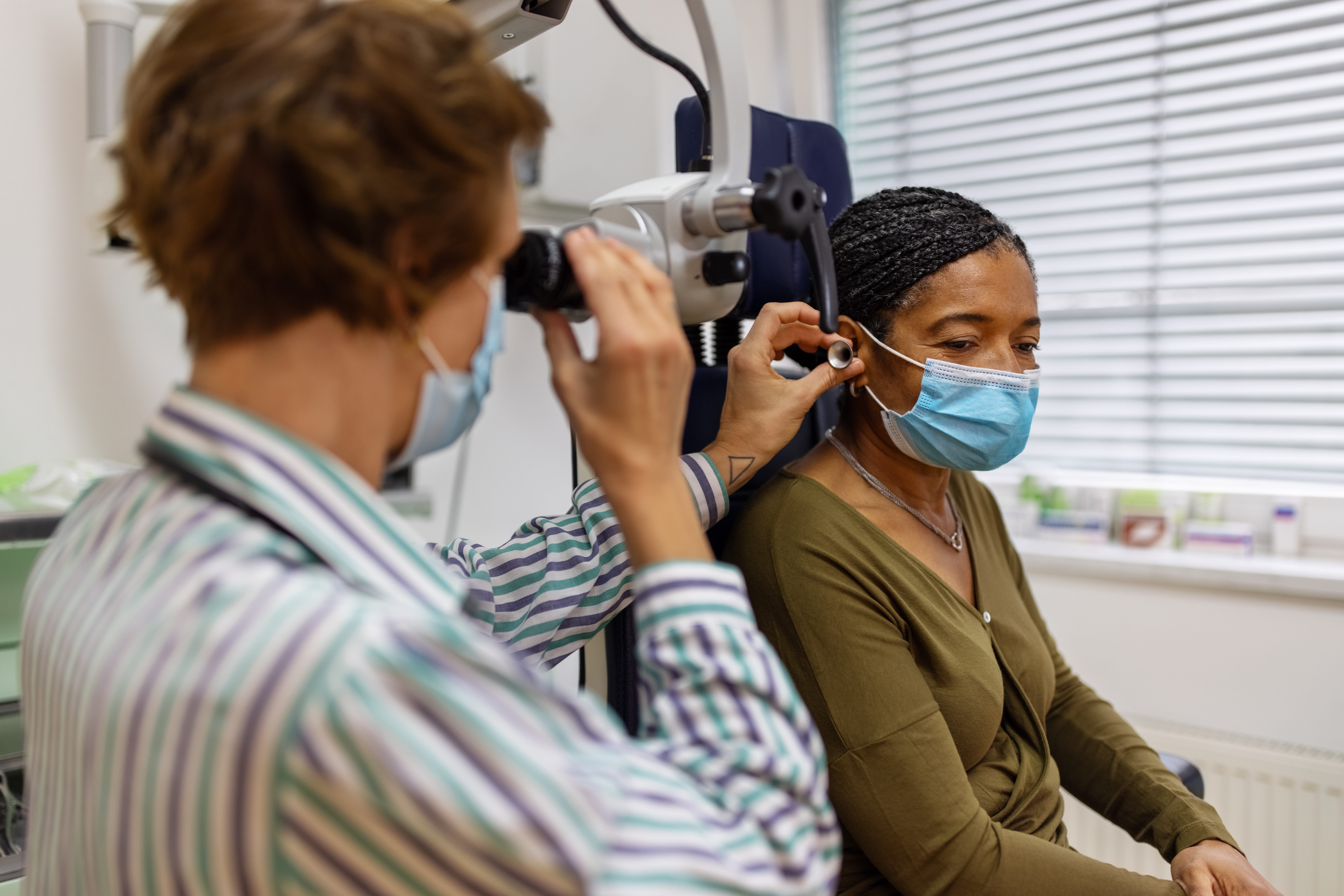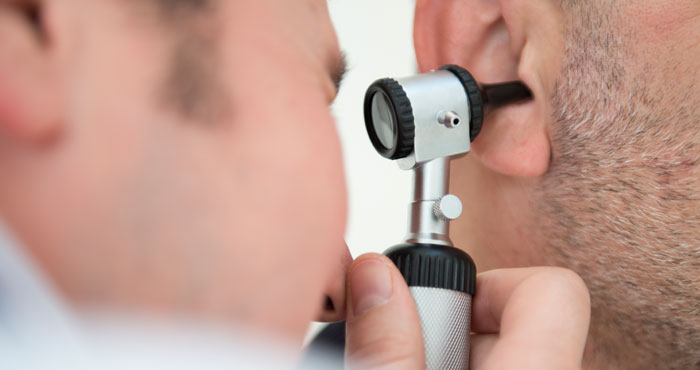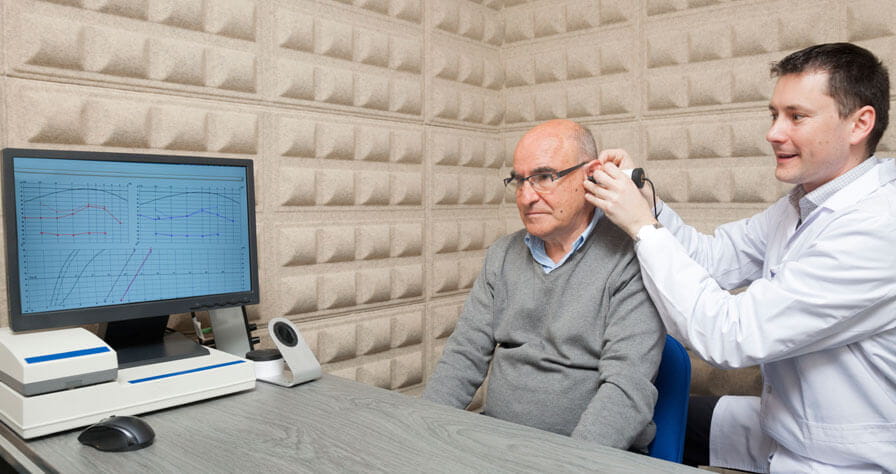What Are Audiologists?

Audiologists are healthcare providers who identify, evaluate, and manage hearing disorders and other neural conditions like those affecting balance.
Many audiologists are doctors who have doctorate in audiology (AuD) degrees. They work in different settings, including:
- Hospitals
- K-12 schools
- Colleges and universities
- Doctors’ offices
- Rehabilitation centers
- Long-term care facilities
- Government agencies
- Military settings
- Veterans’ Administration (VA) hospital
Audiologists provide a wide variety of services designed to improve hearing and related functions. As a result, their work can significantly improve the quality of life for patients.
What Does an Audiologist Do?
Audiologists help patients of all ages — from newborns to seniors. An audiologist’s work includes:
- Conducting hearing tests and analyzing the results
- Determining how to address hearing deficits
- Selecting and fitting hearing aids and other devices
- Educating patients on how to prevent hearing loss
- Recommending hearing-protection devices for patients who need them due to their work environments, etc.
- Helping patients address tinnitus (ringing in the ears)
- Identifying and evaluating conditions of the inner ear that affect balance
- Providing data used by researchers to further the prevention of hearing loss and the identification and management of hearing dysfunction, balance issues, and tinnitus
These services are essential to protecting and improving hearing and balance functions. Specific conditions that audiologists treat include:
- Noise-induced hearing loss
- Non-syndromic genetic hearing loss
- Syndromic genetic hearing loss
- Sensorineural hearing loss
- Congenital cytomegalovirus (CMV) infections
- Ototoxicity
- Auditory process disorders
What Are the Educational Requirements to Become an Audiologist?
An audiologist typically has a master’s degree in audiology from an accredited university. As noted above, audiologists increasingly have doctoral degrees.
Either way, they serve an externship year or fellowship and are licensed or accredited after passing “boards.” In addition, they participate in continuing education to earn the credits necessary to meet ongoing licensing requirements.
Audiologists typically must earn state and national certifications to practice audiology. Many also stay current on developments in their field through membership in organizations like the American Academy of Audiology.
Signs You Should Visit an Audiologist
Hearing loss and balance problems can develop over time, making them hard to detect. But you may benefit from talking with an audiologist if you start to notice these symptoms or have friends or loved ones mention them to you:
- You often ask people to repeat themselves.
- You feel like others are mumbling or talking softly.
- You have trouble hearing others in noisy environments.
- You are listening to devices at higher volumes than before.
- You experience lightheadedness or dizziness.
Where Can I Find an Audiologist?
Protecting your hearing and addressing existing hearing loss is essential and achievable with the help of an audiologist.
Don’t hesitate to talk with an audiologist if you have questions or concerns about your hearing or balance. They can conduct testing and prescribe treatment, if appropriate, to address hearing loss or other problems related to the functioning of your ears. And the sooner you take action, the better your outcome will be.
Learn more about audiology services at Baptist Health today!



